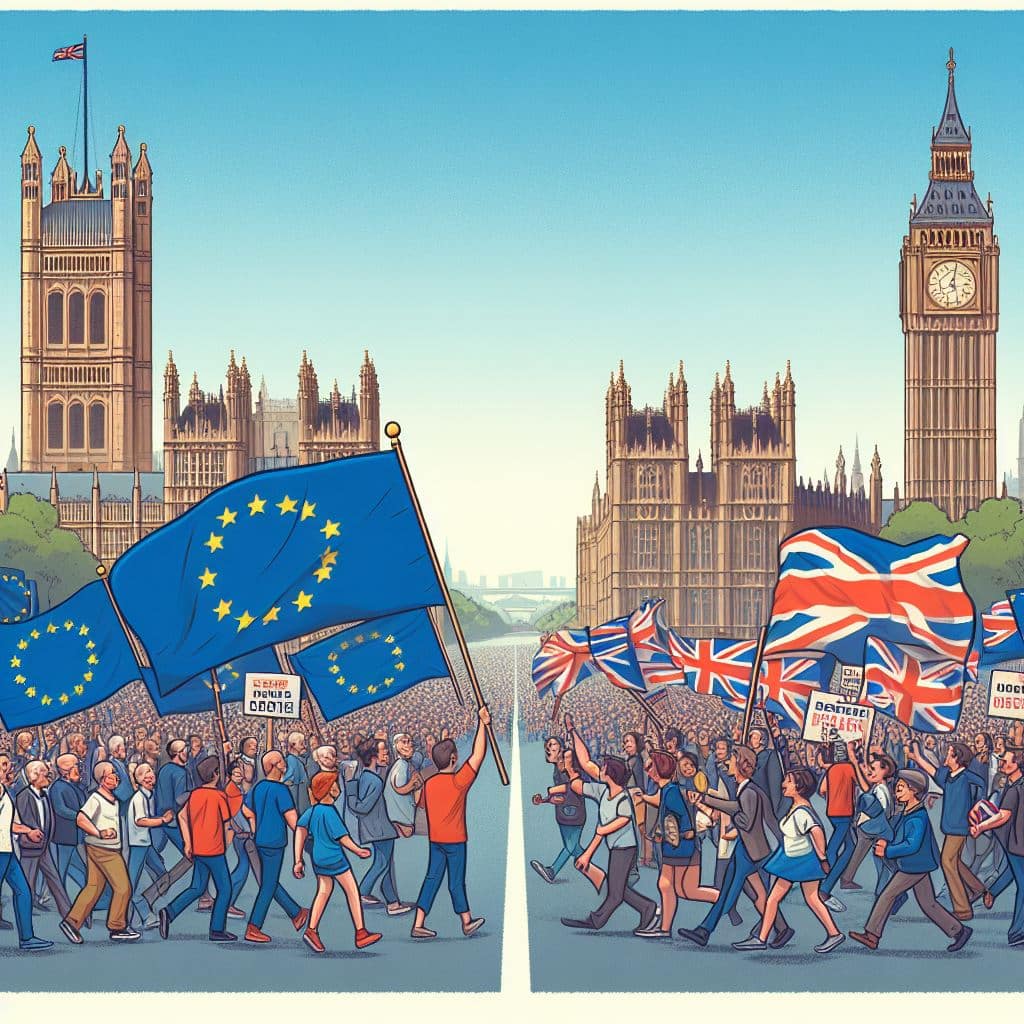Remembering Leslie Hore-Belisha: the man behind the “Belisha Beacons”
SUGGESTED



We could go through a long list of outstanding British Jews, from Benjamin Disraeli to Isaiah Berlin, from the Rothschilds to Harold Abrahams, from Isaac Wolfson to Anna Freud. But I’d like instead to focus here on a largely forgotten figure from the first half of the twentieth century. I say forgotten, but every day we walk or drive past lasting monuments to his name. These are the flashing orange globes on a black-and-white pole that mark zebra crossings in this country – Belisha beacons.
Few people now recall Leslie Hore-Belisha, the Minister of Transport whose name is forever linked to these ubiquitous pieces of street furniture. Yet he deserves to be remembered for more than an oversized lollipop. Both a far-sighted politician and a first-rate administrator, he achieved a great deal. Yet his career shows that he also suffered from an appalling but very British anti-semitism of which we should be reminded.
I’ve been reading snippets about Hore-Belisha in Simon Heffer’s recent book Sing as We Go: Britain Between the Wars – an excellent book, incidentally – which motivated me to dig around a bit more for background on a man I previously knew only a little about.
Born in Hampstead in 1893, and educated at Bristol’s Clifton College and Oxford (where he became President of the Union), he went on to further studies in Paris and Heidelberg before the First World War. During the hostilities he served in France, Flanders and Salonika as a major in the Army Service Corps. After the war he qualified as a barrister and became a Liberal MP in the general election of 1923. A critic of the Liberals’ support for Labour’s minority government, he soon established a reputation as a sparkling and witty Parliamentary speaker, so much so that he receives a name-check for making a brilliant speech in H G Wells’s sci-fi fantasy The Shape of Things to Come.
One of Hore-Belisha’s most interesting back-bench interventions came in a Commons debate in November 1926, when he spoke against the nationalisation of the BBC as a monopoly broadcaster. In words which anticipate many later criticisms, he argued that the House of Commons ‘ought not lightly to establish a censorship over the free expression of opinion and the dissemination of knowledge’. Rather than the BBC state broadcaster, he thought the US system of ‘free and uncontrolled transmission’ was closer to liberal principles and ‘the genius and spirit of the English people’.
With the collapse of the Labour government in 1931, Hore-Belisha became one of just a handful of Liberal MPs who agreed to support Ramsay MacDonald’s National Government. Following the general election that year he became a junior minister at the Board of Trade, and in September 1932 was promoted to the post of Financial Secretary to the Treasury (under Neville Chamberlain as Chancellor). His drive and ability in that role were rewarded in 1934 by appointment as Minister of Transport.
Motoring in the early 1930s was expanding rapidly as cars became cheaper and affordable for increasing numbers of people. But it was the Wild West; anybody could drive without training and there was no speed limit. The year in which Hore-Belisha took office was marked by the highest-ever number of fatalities on UK roads: a horrifying 7,343; in a typically pithy phrase he called it ‘mass murder on the roads’. For comparison, in a much larger population and with more than twenty times the number of road vehicles, the year to June 2023 saw only 1,633 deaths.
In just under three years, Hore-Belisha brought deaths down sharply by a series of measures including introducing a driving test, imposing a 30 mph speed limit in urban areas, rewriting the Highway Code, bringing in stronger insurance requirements and stiffer penalties for dangerous driving, requiring cyclists to have rear reflectors – and introducing the famous beacons. His success was widely acknowledged, and he was popular with the general public, having a flair for public relations unusual at the time.
In 1937 Chamberlain, by then Prime Minister, appointed Hore-Belisha as Secretary of State for War, where his administrative skills and innovative approach played a major part in reforming and democratising the armed forces, improving living conditions for the ordinary soldier, developing a Territorial Army, and generally helping to prepare the country for a war which he saw as inevitable. He pushed, though less successfully at first, for peacetime conscription, and for bringing Churchill (whom he had first met at the age of eleven, and had revered for many years) back into government.
Although his dynamism still proved popular with the general public, he had numerous critics, some of them motivated by hair-raisingly crude antisemitism. Oswald Mosley, predictably, denounced him as a ‘Jewish warmonger’, but even within Parliament such bigotry found a home. An eccentric Scottish Unionist MP with fascist sympathies, Archibald Ramsay, founded a secret society (the Right Club) with the aim of removing Jewish influence from the Conservative Party. In 1938 he began a campaign to have the Secretary of State sacked, circulating pamphlets to that effect. In one speech he warned that Hore-Belisha ‘will lead us to war with our blood-brothers of the Nordic race in order to make way for a Bolshevised Europe.’ During World War II Ramsay was to be the only British MP to be interned.
Hore-Belisha’s reforms, which involved sacking the Chief of the Imperial General Staff, eventually fell foul of a cabal of high-ranking traditionalist army officers. One of them, Sir Henry Pownall, Chief of Staff of the British Expeditionary Force, demanded his dismissal, calling him a ‘shallow-brained, charlatan, political Jewboy’ with no understanding of military matters.
He was sacked, to the public’s surprise, just four months into the war. The exact circumstances have never been satisfactorily explained: some newspaper speculation at the time took Hore-Belisha’s side. It has been suggested that the senior officers persuaded the King to intervene, telling Chamberlain that he couldn’t have a situation where his senior officers were at loggerheads with their political masters. Some say the King was already antipathetic towards Hore-Belisha, who had supported Edward VIII during the Abdication crisis.
Chamberlain had disliked some of the pressure which Hore-Belisha tried to exercise on his government’s policy. But he recognised Hore-Belisha’s ability, and now proposed to make him Minister of Information. Given his talents for publicity and his rapport with the public, this could have been an inspired appointment. However the plan was vetoed by Lord Halifax, the Foreign Secretary, ‘because H. B. was a Jew’, according to Iain Macleod. As a consolation prize, he was offered the job of President of the Board of Trade. But as this was an obvious demotion, Hore-Belisha refused. He tried to get Churchill to intercede, but this was an unsuccessful ploy and resented by the soon-to-be Great Man, whose own position at that time was far from secure.
Hore-Belisha retired to the back benches. He resigned from the Liberal Nationals in 1942 and became a ‘Liberal Independent’, although he joined the 1945 caretaker Conservative administration as Minister for National Insurance. In the general election of that year he lost his seat, Plymouth Devonport, to Michael Foot, the future leader of the Labour Party. After this he finally joined the Conservatives and tried unsuccessfully to get back into Parliament at the 1950 election. Later he entered the House of Lords, as Baron Hore-Belisha of Devonport. He died in 1957, during a Parliamentary jaunt to France.
All political careers may end in failure, but at least Leslie Hore-Belisha left us with those useful beacons to remind us of his contributions to national life. That’s more than many of the current crop of chancers will leave behind them.
1 thought on “Remembering Leslie Hore-Belisha: the man behind the “Belisha Beacons””
Comments are closed.





HB was Minister for National Insurance in Conservative caretaker administration (23/5/45-26/7/45) which enacted Family Allowances Act 15th June 1945. Became child benefit. Tories legislated not Attlee.